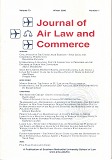FAQ #13: Didn't the earliest version of this plan talk about "Lunar land grants"? Why isn't that phrase being used anymore?
The phrase "Lunar land grants" is no longer used because it conveyed the misimpression that land on the Moon is currently someone's to grant. The phrase used today is the less catchy but more accurate "land claims recognition." The phrase "land grant" is used only to talk about what we cannot do in space, or (as in FAQ #14) historical analogies on Earth.

Questions & Answers about Lunar Land Claims Recognition
Note: The first 25 FAQs below are reprinted from the Space Settlement Initiative ![]() website.
website.
What is the real purpose of enacting a Lunar land claims recognition law?
What does international law say about private property ownership in space?
Can there be property ownership without national sovereignty?
What if other nations refuse to recognize land claims in space?
Why not allow smaller, limited land claims for easier steps than settlement?
Could lunar land really be worth enough money to make a difference?
What conditions should the US set for recognition of a claim?
How much land should a settlement be able to claim... and why?
Are the weaknesses and compromises in this plan likely to be permanent?
Could other sources of revenue be enough without land claims recognition?
What effect would this have on NASA and the aerospace companies?
More FAQs
The FAQs above cover basic questions about Lunar Land Claims Recognition. The following questions address more advanced issues.
If we really went to the Moon in 1969, why aren't we there now?
What were the assumptions before the Outer Space Treaty, (e.g. Robert Heinlein)?
Will changing how NASA works bring the taxpayers back on board?
Could this law force the US to recognize a foreign government's Lunar land claim?
Would Article VI of the Outer Space Treaty prohibit Lunar land claims recognition?
| Back from Didn't the earliest version of this plan... to Frequently Asked Questions (FAQs) Back from Didn't the earliest version of this plan... to the Space Settlement Institute home page |




